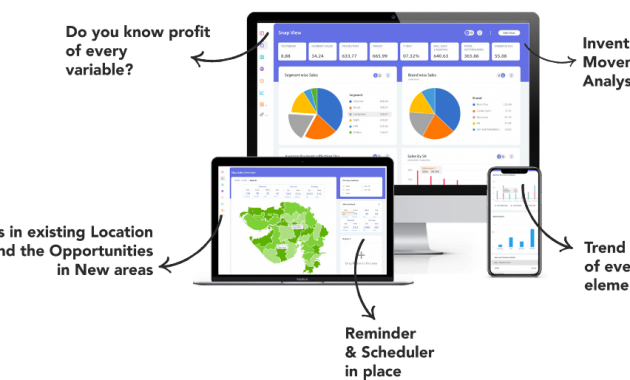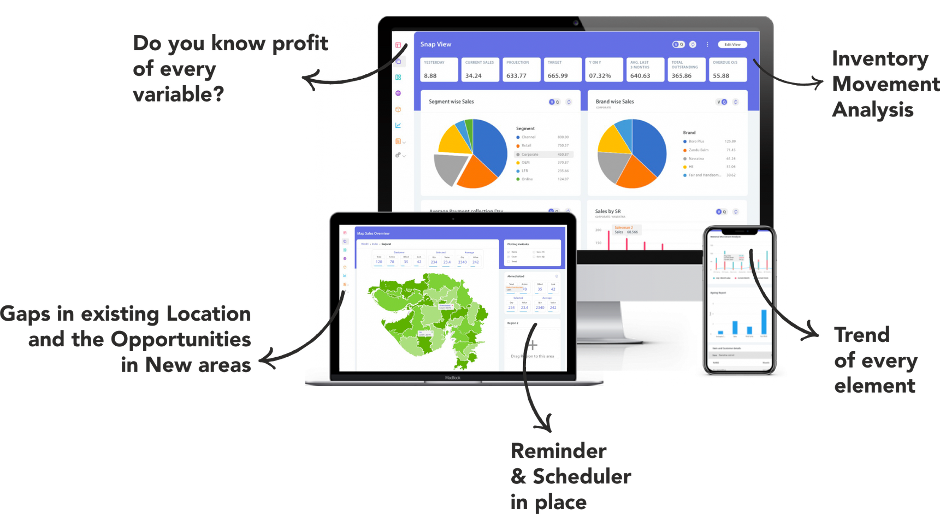
Business Intelligence Tools That Personalize Subscriptions: A Data-Driven Revolution
In the rapidly evolving landscape of digital commerce, subscription models have become a cornerstone of many businesses. From streaming services to software applications, consumers increasingly opt for recurring access to products and services. However, the “one-size-fits-all” approach to subscriptions is becoming obsolete. Customers now demand personalized experiences, and businesses are turning to Business Intelligence (BI) tools to meet this demand. This article delves into how Business Intelligence tools are revolutionizing the subscription model by enabling hyper-personalization.
The Rise of Personalized Subscriptions
The shift toward personalized subscriptions is driven by several factors. Consumers are bombarded with choices. They expect services to understand their individual needs and preferences. This expectation extends beyond simply recommending products. It includes tailoring content, pricing, and even the frequency of communication. Companies that fail to personalize risk losing subscribers to competitors who offer more relevant experiences. This is where Business Intelligence tools become invaluable.
Personalization is not merely a trend; it’s a necessity for subscription businesses. It fosters customer loyalty, reduces churn, and maximizes customer lifetime value (CLTV). By leveraging data, companies can gain insights into subscriber behavior, preferences, and pain points. This allows them to optimize their offerings and provide highly targeted experiences. Business Intelligence tools are the engines driving this data-driven personalization.
How Business Intelligence Tools Enable Personalization
Business Intelligence tools are designed to collect, analyze, and visualize data from various sources. They provide businesses with the ability to understand their customers at a granular level. Here’s how these tools facilitate personalization within the subscription model:
- Data Collection and Integration: BI tools can integrate data from multiple sources. This includes CRM systems, website analytics, payment gateways, and social media platforms. This holistic view of the customer is the foundation for effective personalization.
- Customer Segmentation: BI tools empower businesses to segment their subscriber base based on demographics, behavior, purchase history, and other relevant factors. This allows for the creation of targeted marketing campaigns and tailored product recommendations.
- Behavioral Analysis: By tracking user interactions with the product or service, BI tools can identify patterns and trends. This data reveals how subscribers use the service, what features they utilize, and what content they engage with. This helps businesses tailor their offerings to individual preferences.
- Predictive Analytics: Advanced BI tools use predictive analytics to forecast subscriber churn. They also predict future purchasing behavior. Businesses can proactively engage with at-risk subscribers and offer incentives to retain them.
- Personalized Recommendations: Based on customer data and preferences, BI tools can generate personalized product recommendations, content suggestions, and service offerings. This enhances the user experience and drives engagement.
- A/B Testing and Optimization: BI tools facilitate A/B testing of different subscription plans, pricing models, and marketing messages. This allows businesses to optimize their offerings for maximum impact and conversion rates.
Key Features of Business Intelligence Tools for Subscription Personalization
Not all Business Intelligence tools are created equal. Businesses should look for specific features that support subscription personalization. The following are critical:
- Advanced Analytics Capabilities: The ability to perform complex data analysis. This includes statistical modeling and machine learning algorithms. These capabilities uncover hidden patterns and insights.
- Data Visualization: User-friendly dashboards and reports that present data in an easily understandable format. This allows for quick identification of key trends and insights.
- Integration with Marketing Automation Platforms: Seamless integration with marketing automation tools. This enables businesses to trigger personalized email campaigns and deliver targeted content.
- Real-time Data Processing: The ability to process data in real-time. This allows for immediate responses to customer behavior and preferences.
- Customer Relationship Management (CRM) Integration: Integration with CRM systems for a unified view of the customer. This improves communication and customer service.
- Scalability: The ability to handle large volumes of data. This is essential for businesses with a growing subscriber base.
Examples of Business Intelligence Tools in Action
Several companies are already leveraging Business Intelligence tools to personalize their subscription models. Here are some examples:
- Netflix: Netflix uses sophisticated BI tools to analyze viewer behavior. They personalize recommendations, create targeted content, and optimize their user interface. This results in high engagement and retention rates.
- Spotify: Spotify employs BI to curate personalized playlists. They also provide music recommendations based on user listening habits. This enhances the user experience and drives subscription renewals.
- Amazon Prime: Amazon Prime uses BI to personalize recommendations. They offer tailored deals and promotions to subscribers. This increases customer engagement and drives sales.
- Software-as-a-Service (SaaS) Companies: SaaS providers utilize BI to track user activity within their applications. They personalize onboarding experiences, offer tailored product tutorials, and provide customized support. This reduces churn and increases customer satisfaction.
Selecting the Right Business Intelligence Tools
Choosing the right Business Intelligence tools is crucial for successful subscription personalization. Consider the following factors:
- Your Business Needs: Identify your specific business goals and requirements. What data do you need to analyze? What insights are you hoping to gain?
- Data Sources: Determine the data sources you need to integrate. Ensure the tool can connect to your existing systems.
- Budget: Set a realistic budget for the tool and its implementation. Consider both the initial cost and ongoing maintenance fees.
- Ease of Use: Choose a tool that is user-friendly and easy to learn. This will ensure that your team can effectively utilize the tool.
- Scalability: Select a tool that can scale with your business as your subscriber base grows.
- Vendor Support: Ensure that the vendor provides adequate support and training. This will help you get the most out of the tool.
The Future of Subscription Personalization
The future of subscription models lies in hyper-personalization. As technology continues to advance, Business Intelligence tools will become even more sophisticated. This will allow businesses to provide even more tailored experiences. Artificial intelligence (AI) and machine learning will play a significant role. They will automate many personalization tasks. They will also provide deeper insights into customer behavior. Businesses that embrace these technologies will be best positioned to succeed in the subscription economy.
The trend of personalized subscriptions is undeniable. Business Intelligence tools are the key to unlocking this potential. By leveraging data and analytics, businesses can create highly customized experiences. They can boost customer loyalty, reduce churn, and drive revenue growth. Investing in the right BI tools is no longer optional. It is a strategic imperative for any business looking to thrive in the subscription economy.
Business Intelligence tools are not just about data analysis. They are about understanding your customers. They are about creating meaningful relationships. They are about building lasting value. Embracing these tools is essential for a successful subscription strategy. [See also: Related Article Titles] The future of subscriptions is personal, and Business Intelligence tools are leading the way.
As the subscription model continues to evolve, the importance of Business Intelligence tools will only increase. Businesses must adapt and invest in these technologies to stay competitive. This is crucial for delivering the personalized experiences that customers demand. The ability to understand and respond to customer needs is the key to long-term success.
The core function of Business Intelligence tools is to turn raw data into actionable insights. This allows businesses to make data-driven decisions. These decisions will drive personalization efforts and improve the customer experience. The journey toward personalized subscriptions is ongoing. Business Intelligence tools are the essential tools to help navigate this journey.

